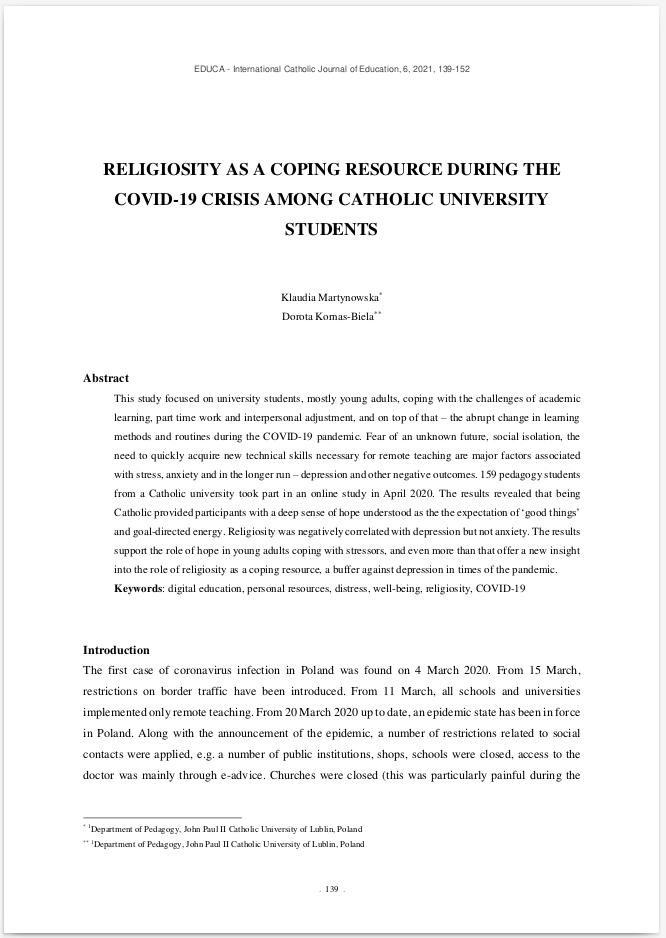Religiosity as a coping resource during the COVID-19 crisis among catholic university students
Main Article Content
Abstract
This study focused on university students, mostly young adults, coping with the challenges of academic learning, part time work and interpersonal adjustment, and on top of that – the abrupt change in learning methods and routines during the COVID-19 pandemic. Fear of an unknown future, social isolation, the need to quickly acquire new technical skills necessary for remote teaching are major factors associated with stress, anxiety and in the longer run – depression and other negative outcomes. 159 pedagogy students from a Catholic university took part in an online study in April 2020. The results revealed that being Catholic provided participants with a deep sense of hope understood as the the expectation of ‘good things’ and goal-directed energy. Religiosity was negatively correlated with depression but not anxiety. The results support the role of hope in young adults coping with stressors, and even more than that offer a new insight into the role of religiosity as a coping resource, a buffer against depression in times of the pandemic.

